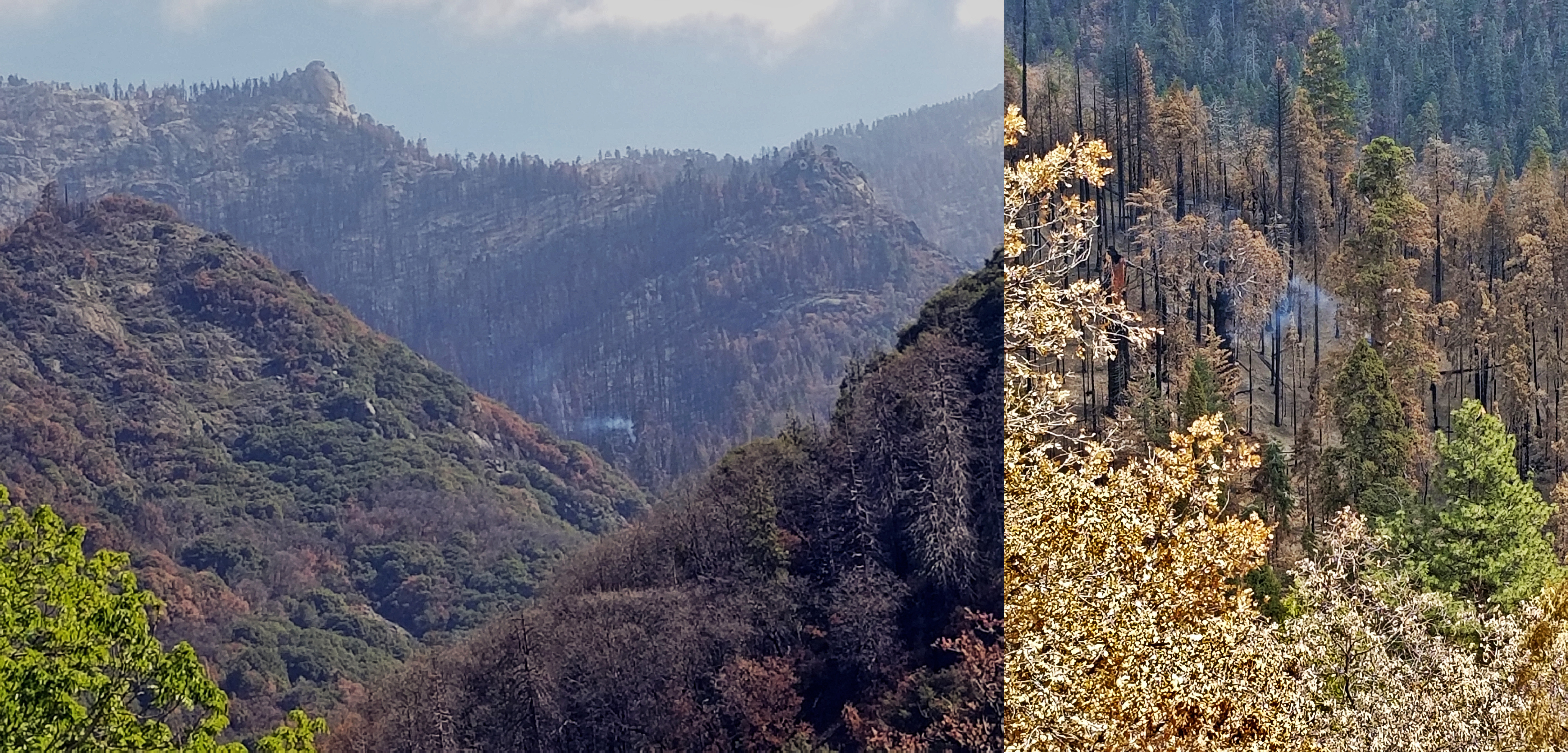News Release
You are viewing ARCHIVED content published online before January 20, 2025.
Please note that this content is NOT UPDATED, and links may not work. For current information,
visit https://www.nps.gov/aboutus/news/index.htm.

NPS / Tony Caprio
|
Subscribe
|
Contact: Mike Theune, Fire Information Officer, 559-565-3703
SEQUOIA NATIONAL PARK, Calif. May 5, 2021 – Recently, National Park Service scientists and fire crews were surveying the effects from the 2020 Castle Fire in Sequoia National Park, when they observed a still smoldering and smoking giant sequoia tree that appears to be caused from last year’s fire.There are no current threats to life or property and fire managers are prepared to take action if conditions warrant. The burning giant sequoia is well interior of any firelines and is away from any trails. It is located in the Board Camp Grove and there is no direct access via any trail system. However, it may be still visible from the Ladybug Trail which leaves east bound from the South Fork Campground at the southern end of Sequoia National Park.
“The fact areas are still smoldering and smoking from the 2020 Castle Fire demonstrates how dry the park is,” said Leif Mathiesen, assistant fire management officer for Sequoia & Kings Canyon National Parks. “With the low amount of snowfall and rain this year, there may be additional discoveries as spring transitions into summer,” he added.
Firefighters and park rangers want to take this opportunity to remind the public the importance of staying on trails, being observant, having a plan, and letting someone know where you’re going and when you plan to return. It’s also important to let that someone know that you’ve returned.
Many of the areas impacted by last year’s wildfires in the parks are in wilderness. While day use does not require a separate permit from the parks’ entrance fee, any overnight stays do require an additional permit. For information on wilderness permits, visit https://www.nps.gov/seki/planyourvisit/wilderness_permits.htm for details.
-NPS-
About Sequoia and Kings Canyon National Parks’ Fire Management Program
For over fifty years, our mission has been to use the full range of options and strategies available to manage fire in the parks. This includes protecting park resources, employees, and the public from unwanted fire; building and maintaining fire resilient ecosystems; reducing the threat to local communities from wildfires emanating from the parks or adjacent lands; and recruiting, training, and retaining a professional fire management workforce.
-###-
Last updated: May 4, 2021
